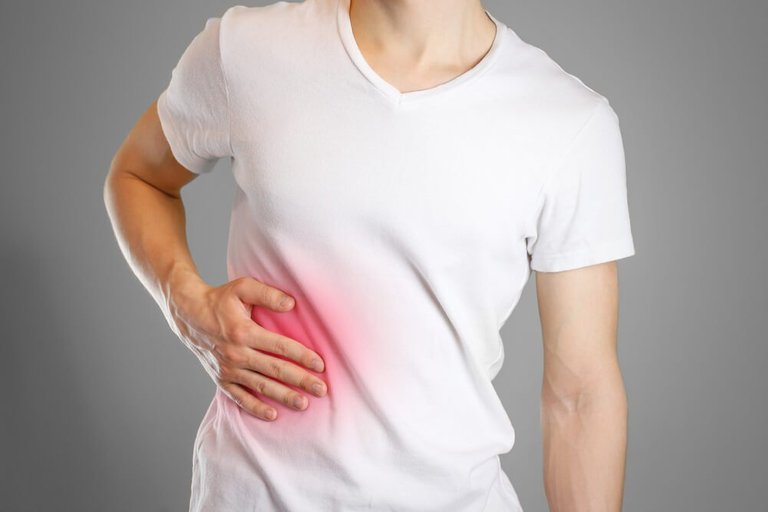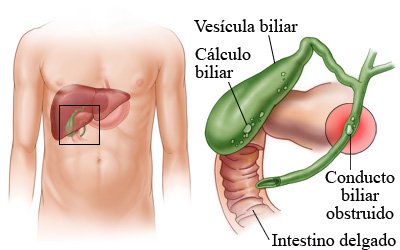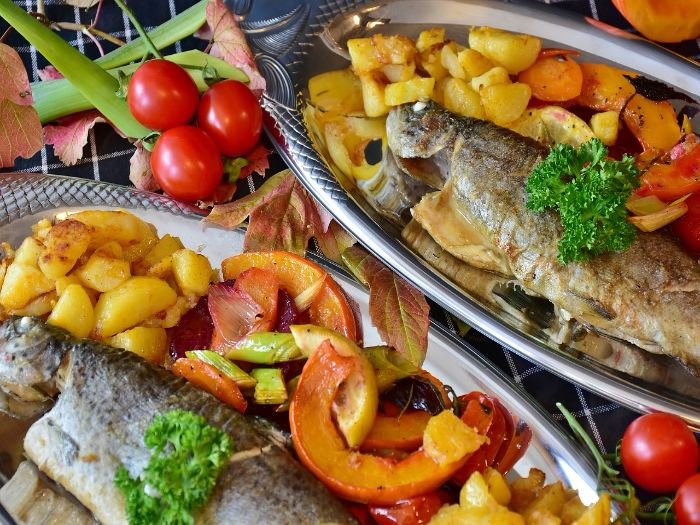Hello dear friends of the steemit community, especially those friends of the trends @naturalmedicine @health, @stach @farms, and @ air-clinic.
I want to share an article about what foods to consume before the discomforts of the vesicle, I will explain how to make a proper diet to reduce this discomfort. Specifying which are those breaths that can be consumed without any problem, which can be consumed moderately and which can not be consumed, since it worsens this disease causing colic. It is important to take these data and to fulfill these tips to the letter so that they can have a good effect on our health.
At the same time, it should be noted that if you do not have gallbladder problems, you can comply with this diet so you will avoid this discomfort in the future.
Cholelithiasis or gallstones is the representation of stones in the gallbladder. There are two types of biliary lithiasis, 80% of cases are cholesterol stones that are formed by abnormalities in the metabolism of cholesterol and bile salts. The pigmentary lithiasis is due to supersaturation of the bile by bilirubin stones (a pigment present in the bile).
Cholesterol calculations are related to excess triglycerides and blood cholesterol or low levels of HDL "good cholesterol". People who are overweight and obese have a higher risk of gallstones.
Likewise, vesicle calculations can be caused by abrupt slimming diets. Many cases also occur, since the emptying of the vesicle slows down. Other risk factors are the treatment with contraceptives, estrogens, diets low in fiber and rich in fats and pathologies of the liver (hepatitis, cirrhosis) or gallbladder.
What is the bladder?
The main function of the gallbladder is to store bile, which helps the body break down and digest the fats that a person eats. Bile acts as a surfactant for fats. Although the gallbladder is not responsible for producing bile, it is responsible for storing it and secreting it through the bile ducts.
Bile is secreted in response to the presence of the hormone cholecystokinin. In this case the bile is secreted in the small intestine and helps break down the fats of the food that have been ingested.
Foods recommended are the following:
• Milk and dairy products: Skimmed products.
• Meats, fish, eggs and their derivatives: meats with low fat, white fish, scrambled eggs, tortilla, poached or crossed by water, chicken or turkey.
• Cereals, potatoes and legumes: All except those indicated in "limited foods". Avoid whole cooked legume.
• Vegetables and vegetables: All except those indicated in "limited foods". They are usually tolerated better cooked and mashed.
• Fruits: Fresh ripe, beaten, roasted, in compote, puree.
• Drinks: Water, defatted broths, soft infusions, non-sugary juices (except orange), non-carbonated drinks.
• Fats: Olive oil and seeds (sunflower, corn, soy), butter or margarine (better tolerated in crude)
• Other products: Breakfast jams, in moderation.
Permitted foods, that is, moderate and occasional consumption are the following:
• Milk and milk: Curd and whole yogurt, natural, with aromas or fruits, fresh Burgos type cheese.
• Serrano ham and lean ham
• Cereals: sweetened or whole breakfast cereals, Maria cookies.
• Legumes: Passed through the Chinese or food mill to eliminate the "skins", test tolerance.
• Drinks: Commercial juices (not acidic or orange), fruit in syrup without the juice.
• Fats: light mayonnaise (less fat than conventional).
• Other products: Honey (can give acidity), simple pastries and pastries (those that in composition most resemble bread: Swiss bun, soletilla biscuits), fruit jelly.
Restricted foods, that is to say, to consume in an eventual way or in small quantities are the following:
To contract the event and the intensity of the colic it is transcendental to prevent all the foods and components that incite the contraction of the vesicle because with periodicity before the presence of calculations its ingestion produces pain:
• Insoluble dietary fiber: avoid whole grains, wheat bran, legumes and seeds. You will feel better cooked foods of vegetable origin.
• Sugars: they stimulate the secretion of bile, therefore, it minimizes the hidden sugar of your diet.
• Xanthines: foods rich in caffeine and theobromine such as coffee, yerba mate, tea or cola drinks, stimulating the gallbladder.
• Extreme temperatures: very cold or very hot foods and drinks are strong stimuli of the vesicle.
• Purines: red meat, liver, organ meats, blue fish -anchoas, mackerel-, beer and wine
• Large portions: better to eat several times a day and in small quantities.
• Carbonated drinks.
• Alcohol.
• Milk and milk: All, except those indicated in recommended and permitted foods.
• Fat meats, charcuterie products, fatty sausages, foie gras, pâtés, organ meats, blue fish, boiled eggs, pickled or salted fish (cod, herring ...).
• Cereals and legumes: Freshly baked bread type baguette and undercooked pasta (ferment in the stomach and create discomfort), whole grains and legumes cooked with fatty ingredients (black pudding, bacon ...).
• Vegetables: flatulent (cabbage, cauliflower, cabbage, Brussels sprouts, artichokes, onions and raw peppers)
• Fruits: Immature and raw fruit, acid fruits, oranges, dried fruits and candied fruits.
• Drinks: Coffee, decaffeinated and strong tea, drinks with coffee or guarana extracts, orange juice, chocolate, gas and alcoholic beverages.
• Fats: All.
• Other products: Fatty fried foods, pastry and confectionery, chocolate and fatty sauces, hot sauces.
It is very important to drink 2.5 to 3 liters of water a day and be strict with the diet for stones in the gallbladder, because if medication is taken and food is not corrected, we will not solve the problem at the root.
Take a glass of water at breakfast with a few drops of lemon for a lifetime, to neutralize the hyperacidity of the internal environment, which accelerates the formation of stones. Reduces or suppresses alcoholic beverages as they increase the production of uric acid and triglycerides.
It is also advisable to establish a fixed schedule of 5-6 meals, taking into account:
• In all meals there should be: protein, fat and carbohydrates.
• No more than 4 pieces of fruit per day.
• Three main meals and two / three snacks.
• Do not let more than an hour pass, since you get up without breakfast.
• Do not let more than 4-5 hours pass between meals.
• If you spend more than 3 hours from dinner at bedtime, you should take a snack (mid morning or afternoon snack).
I hope this valuable information will be very useful.
Thanks for your votes. see you soon!




You’ve been visited by @porters on behalf of Natural Medicine!
Thanks for sharing your research and information on gallbladders and gallbladder health!
--- ##### Come join us in the Natural Medicine fortnightly competition for a chance to win Steem rewards. The theme for this challenge is Home Remedies!
Hello, @emily28. Your post has been manually curated by Altruistic community and has been resteem.
To get more support from Altruistic, you may use the community tag #altruistic-steem.
If you have any suggestion, wants to know more about us, or wants to appear as a guest author and or curator, join us on the discord community server.
Keep blogging!
Congratulations @emily28! You have completed the following achievement on the Steem blockchain and have been rewarded with new badge(s) :
You can view your badges on your Steem Board and compare to others on the Steem Ranking
If you no longer want to receive notifications, reply to this comment with the word
STOPDo not miss the last post from @steemitboard: